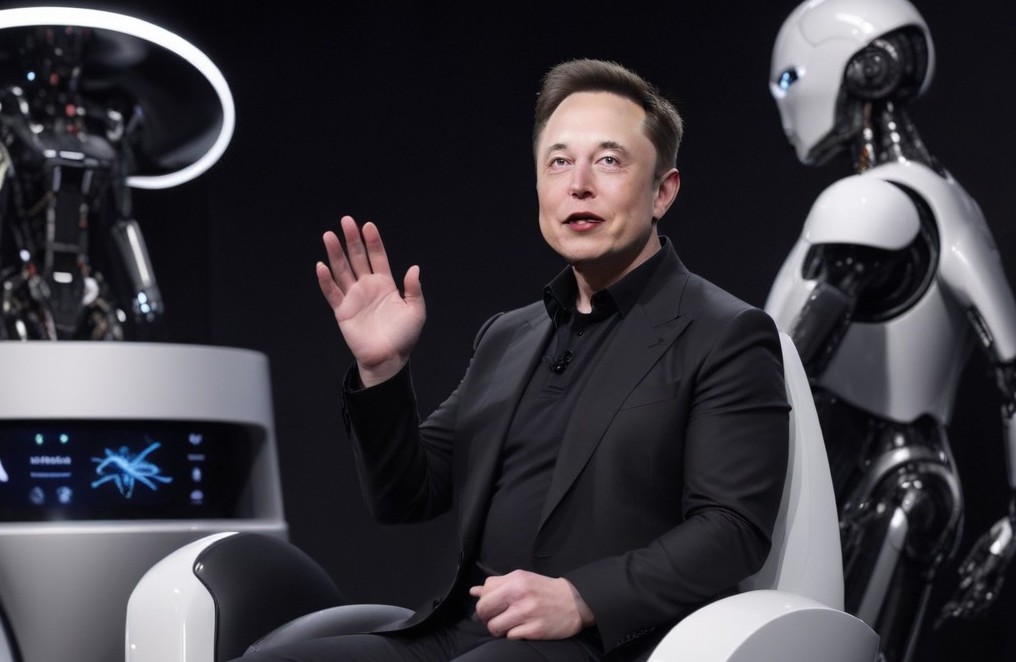Elon Musk, the CEO of Tesla and SpaceX, founder of Starlink and Neuralink, and owner of the social media platform X (formerly Twitter), has long been known for his relentless work ethic. Yet, despite his dedication to his various ventures, Musk envisions a future where traditional careers become optional, thanks to advancements in artificial intelligence (AI) and robotics.
During his appearance at the VivaTech conference in Paris this week, Musk shared his thoughts on how AI could transform the job market.
He posited that in a “benign scenario,” the necessity of having a job would dissipate. “In a benign scenario probably none of us will have a job,” Musk stated. “But in that benign scenario, there will be universal high income—not universal base income—and there will be no shortage of goods or services.”
Musk’s confidence in this positive outcome stems from the massive investments currently being funneled into AI development. He estimated an 80% likelihood that the future will not lack goods or services.
“Everyone will have access to as much in the way of goods and services as they would like,” he said.
However, he acknowledged a potential existential dilemma: “The question will really be one of meaning. If a computer and the robots can do everything better than you, does your life have meaning?”
This perspective highlights a significant shift in how work and purpose might be perceived in the future.
Musk suggested that jobs will become more of a leisurely pursuit rather than a necessity. “Long term… any job that somebody does will be optional. If you want to do a job as kinda like a hobby you can do a job but otherwise the AI and robots will provide any goods and services you want,” he elaborated.
However, Musk did not specify a timeline for when this futuristic vision might come to fruition, implying that for now, the current workforce will need to continue their roles.
The impact of AI on careers has been a subject of much debate and concern. According to a PwC survey conducted last year, 13% of respondents feared they would be replaced by AI, while 18% felt they would need to acquire new skills that they were not confident in mastering.
Despite these concerns, a significant portion of the workforce remains optimistic about AI’s potential benefits. The survey revealed that a third of respondents believed AI would improve their efficiency at work, and 21% felt it would create new career opportunities.
Musk’s commentary reflects a dual perspective on AI’s potential. On one hand, he sees a future where AI alleviates the need for traditional jobs, creating a world of abundance and leisure. On the other hand, he acknowledges the possible negative scenarios, having been one of the first signatories on a letter from the Future of Life Institute last year that called for a pause on large AI experiments due to potential risks.
This week, he reiterated the importance of proper governance and regulation to avoid catastrophic outcomes, warning that if AI development goes awry, humanity could be in “deep trouble.”
Nonetheless, Musk offered a semblance of reassurance for those worried about AI’s implications for human relevance. He suggested that humans might still play a crucial role in giving AI its purpose. “There’s perhaps still a role for humans in that we give AI meaning,” he mused.
Drawing an analogy with human brain functions, he explained: “If you think of the way that our brain works, we’ve got the limbic system which is our instincts, and our feelings—and the cortex which is thinking and planning. The cortex is constantly trying to make the limbic happy, so maybe that’s how it’ll be with AI. AI is trying to make the cortex happy to make the limbic system happy. Maybe we are what gives the AI meaning or purpose.”
Read also:
Starlink Running a “Degraded Service”due to Heightened Solar Activity
Click here for more News & Current Affairs at EU Today
_________________________________________________________________________________________________________

Follow EU Today on social media:
Twitter: @EU_today
Facebook: https://www.facebook.com/EUtoday.net/
YouTube: https://www.youtube.com/@eutoday1049




